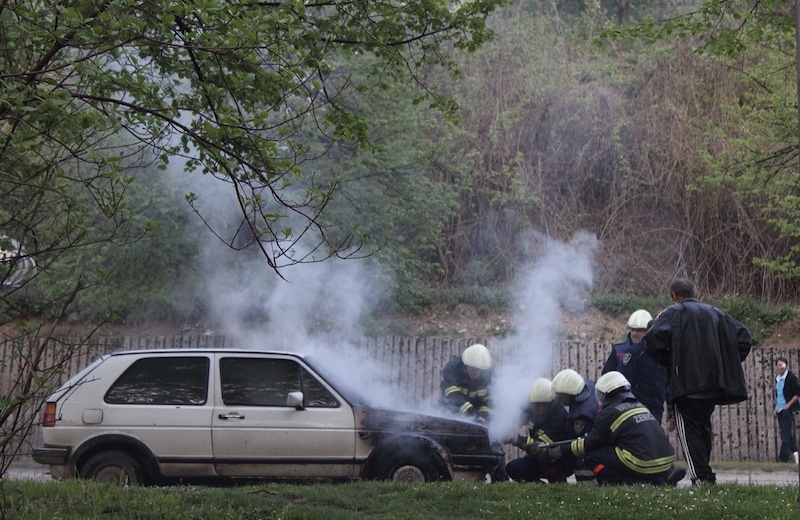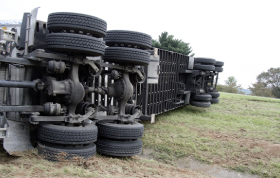After being involved in a truck collision, it is crucial that you act swiftly. Remove yourself from traffic lanes, provide your name, driver’s license number, and insurance information to the police, and seek medical treatment as soon as possible.
Keep in mind that many truck accident injuries are internal and may not present with immediate symptoms. Document all expenses and pain and suffering so your lawyer can build your case effectively and keep the following steps in mind.
1. Call the Police
If you find yourself involved in an accident with a truck, your priority should be calling the police. They can create an official report about what has occurred and ensure all parties involved receive necessary care as quickly as possible.
When calling the police, be as detailed as possible in your description of the event. Include details such as the name of the truck driver, their employer, and insurance information as well as witness details that could prove valuable later.
Trucking companies may be held liable for accidents as they are required to keep records regarding driver training, drug screenings, and more. Annual reviews must take place of these documents.
As you wait for the police to arrive, it is crucial that you remain calm. While it can be easy to become angry following a truck accident, venting that anger at the scene will not do you any favors later on. Avoid making statements that might suggest fault is yours or might place blame elsewhere in the chain of events.
Once the police arrive, they will interview all parties at the scene – including truck drivers and witnesses – about what occurred during the accident and who may have caused it. According to this link – https://www.rd.com/list/things-to-do-after-car-accident/, police will want a thorough description of how it occurred as well as any evidence to show that may have caused it. It is vital that individuals remain calm while answering all questions honestly and completely.
Also, keep in mind that after being involved in a truck accident, it is important to seek medical treatment immediately. Doing so will ensure any injuries you sustain are documented properly in your medical records – helping avoid claims by trucking companies and others that they caused the collision that is unrelated to them.
2. Get Medical Attention
No matter whether you were driving or a passenger in an accident, it is imperative that a medical professional examines you as soon as possible after. Adrenaline can mask many injuries; therefore, it is imperative that an exam be performed by an expert to ascertain any trauma or injuries experienced.
Once your medical needs have been taken care of, you can start gathering the pertinent data. This includes gathering names, contact info, and insurance details of any truck drivers involved in the collision as well as taking photographs or videos of the scene to document vehicle damage, skid marks on the road surface, traffic signals at crash locations, weather conditions or any other factors that may have led to it.
Eyewitness accounts may provide invaluable insight into how an accident unfolded and who was at fault, as well as any injuries related to that crash. You should also request copies of any medical records related to those injuries right away; you may wish for your lawyer or insurance company to make this request but initiating it yourself will give you faster access.
Truck accidents often result in catastrophic injuries that alter victims’ lives forever. According to government estimates, approximately 4,000 Americans die in truck accidents annually in the U.S.; this number has skyrocketed 31% over the last decade alone. Given this information, it is integral that victims know what steps they should take after experiencing a truck collision to increase their chances of receiving compensation to help recover.
3. Gather Evidence
No matter the nature of the accident – car, motorcycle, or truck – steps must be taken immediately to preserve evidence and safeguard your rights. While you should call 911 and seek medical assistance as soon as possible, evidence must also be collected and documented as quickly as possible before it disappears altogether.
Preserving evidence after truck accidents, which often involve larger, heavier vehicles with greater potential damage, is more challenging but remains a good idea in your case. Such evidence includes witness statements, photographs or videos of the accident scene, police reports, and medical records related to your injuries.
Evidence can demonstrate whether a driver violated any federal or state safety regulations, failed to perform routine maintenance on their truck, and/or had any health conditions that affected their ability to drive safely or were under the influence of drugs or alcohol at the time of an accident.

4. Contact Your Insurance Company
If you own a Personal Injury Protection policy (which you can read about here), contact your insurer as soon as possible to inform them about your accident and use PIP to cover medical costs, repairs to your vehicle, and any losses related to it. Failure to inform them within certain time frames could result in your claim being denied by them.
Change information with the other driver by exchanging their names, addresses, insurance information, and the name of their trucking carrier. Also make sure that you collect their license plate number, vehicle description, and any witness accounts from them.
Avoid saying anything that could be used against you later, such as admitting fault for an accident. Also, before signing any medical releases or accepting an insurance offer without first consulting with an attorney.
5. Hire a Lawyer
If you or a family member has been involved in a truck accident, it is essential that an experienced attorney immediately becomes involved. No matter who caused the issue, finding a truck accident lawyer, right away, is imperative. An attorney will ensure you comply with all the required lawsuit thresholds, so they are a must-have.
Your lawyer will do their best to gather as much evidence as possible, including witness statements, police reports, photos of the scene and your injuries, cell phone records that might provide key insights, as well as any possible negligence factors involved in your crash such as driver fatigue, road, and weather conditions, trucking company procedures or vehicle design flaws.
After your accident, attorneys and insurers from the trucking company may try to obtain your statement or conduct further questioning. It is wise not to talk with these people directly as anything you say could later be used against you; instead, direct all calls directly to your attorney so you can focus on recovering instead.




